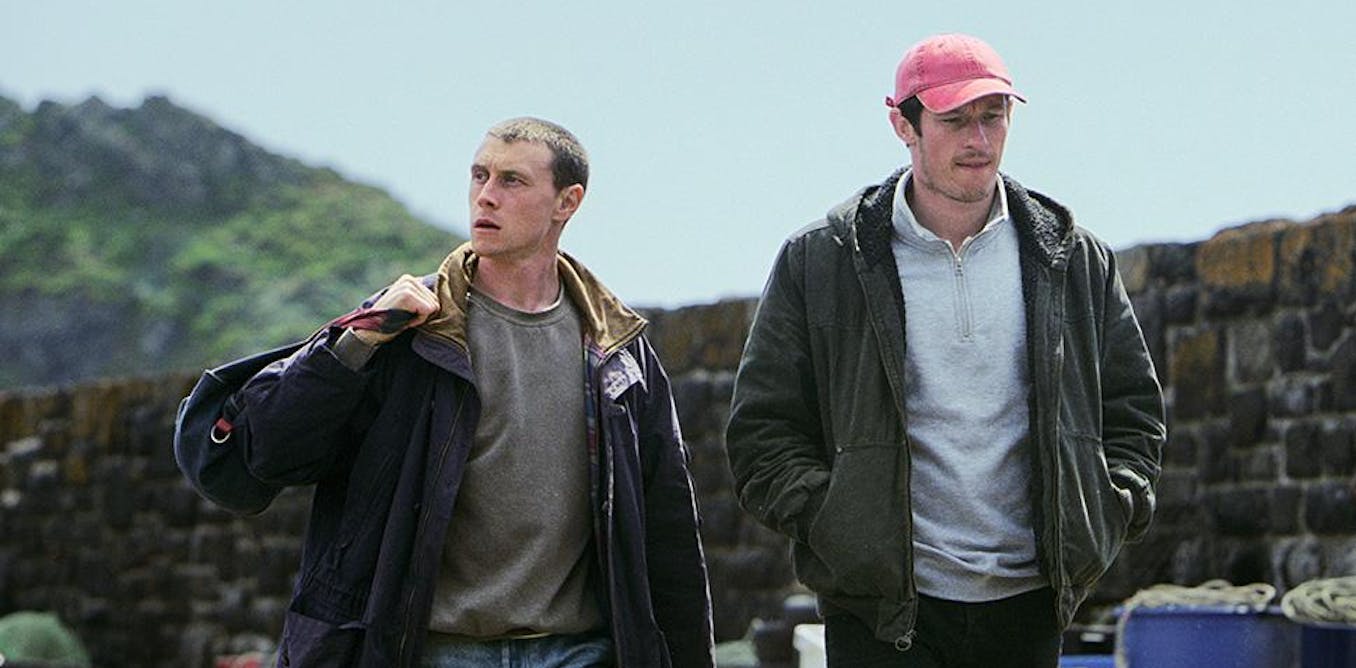Watching a film about dementia is, ordinarily, a sobering activity. We watch someone become imprisoned in the temporal chaos of their mind. We empathise with the family members nobly trying their best to do what’s right. We leave the film in a fog of melancholia, having been reminded of how sad the condition is.
And dementia is sad. But the stories we tell about it need not only be a premature elegy for someone still living. There is more for filmmakers to think about here: when does “the rest of our lives” stop mattering? How do we love those profoundly changed by illness? What is it like when the concept of “now” itself becomes unfamiliar?
Two recent films ask such questions with remarkable imaginative liberty. Instead of falling into well-worn narrative patterns that equate dementia with an inevitable loss of self, they pull at a loose thread in the fabric of that long-entrenched, unhelpful story of tragedy, which has been of disservice for far too long.
A Kind of Madness, from director Christiaan Olwagen, examines how love is redefined when dementia shatters a shared sense of reality. The film follows elderly couple Elna (Sandra Prinsloo) and Dan (Ian Roberts) as they flee from the great obstacle to their joint happiness: residential care.
After breaking Elna out of the care home where she was placed by her adult children, the couple escapes across the South African countryside, Elna reliving the exploits of the rebel bride she once was (and sometimes believes she still is), as Dan tries to save them both from a life flattened by loss.
In one moving scene, Elna insists: “We can start over; it’s never too late.” Dan decides she might just be right. His own reality, overburdened by loss, pales beside Elna’s, a world which, though certainly clouded by confusion and fear, is also filled with beauty, affection, playfulness and the hope in a better future that once defined their love.
While the film does not minimise the horrors dementia brings into family life, it also does not linger there. Instead, it turns toward a deeper question: what do we do with the love we have for someone who faces this illness? A Kind of Madness suggests that a person’s wellbeing may depend as much on how that question is answered as on any form of medical care.
Dementia in Rose of Nevada
A Kind of Madness steers clear of the melancholy dread characteristic of many films about dementia. Rose of Nevada, directed by Mark Jenkin, is steeped in it, but in an entirely new and unsettling way.
A casual viewing of the film might consider dementia thematically peripheral to the central storyline, which follows three Cornish fishermen stranded in 1993, a time-slip three decades past. Yet I would argue that Rose of Nevada is less a tale of supernatural time travel and more about what it really means when someone’s relationship to time is dramatically altered through disease or otherwise.
This theme is embodied by Mrs Richards (Mary Woodvine), an elderly woman seemingly affected by dementia. Mrs Richards’s presence primes the viewer to consider the time-slip not simply as a supernatural phenomenon, but as something profoundly human.
When Nick (George MacKay), a young fisherman, finds himself in what should be his home, but isn’t, he understandably protests: “My name is Nick Dyer! I was born in 1996!” Mrs Richards, appearing as her younger self in 1993, regards him with the same pity that will one day be turned on her.
Through this eerie inversion, which sees a young, healthy fisherman entrenched in the same kind of disorientation that often characterises dementia, Jenkin opens a new avenue for relating to dementia – the uncanny sensation of not knowing where, when or who you are, of being a stranger in once-familiar surroundings.
What makes Jenkin’s new film so unusual is how it takes those experiences and relocates them away from the one character actually suffering from dementia. The young are not treated as outsiders in the same way that the elderly are. Nick and Mrs Richards could not be more different on the surface, but there is a poignant parallel between the two characters.
In showing a young man met with pity as he struggles to assert the basic facts of his identity, the film invites us to set aside our habitual assumptions about dementia and reconsider how we relate to those who live with it. The result is that dementia symptoms are defamiliarised – made strange and unsettling – and a pervasive sense of dread emerges as both characters and audience confront the unsettling possibility that no single, stable reality exists.
Any successful film provides new spaces in which to think about and relate to human experiences. Both A Kind of Madness and Rose of Nevada shift the viewing platform away from the stale master narrative of dementia we know so well, to consider new perspectives.
This is important. How we think about dementia is coloured not only by the stories we see in popular culture, but by the perspectives these stories privilege. These two films are a corrective to a body of cinematic and literary work that has yet to fully recognise the persistent humanity of people living with a disease that renders life non-linear, confounding and painful, but nevertheless resiliently human.
Looking for something good? Cut through the noise with a carefully curated selection of the latest releases, live events and exhibitions, straight to your inbox every fortnight, on Fridays. Sign up here.

The post “Films like A Kind of Madness and Rose of Nevada are helping us see dementia differently” by Andrea Holck, Doctoral Researcher, City St George’s, University of London was published on 11/19/2025 by theconversation.com






































Leave a Reply